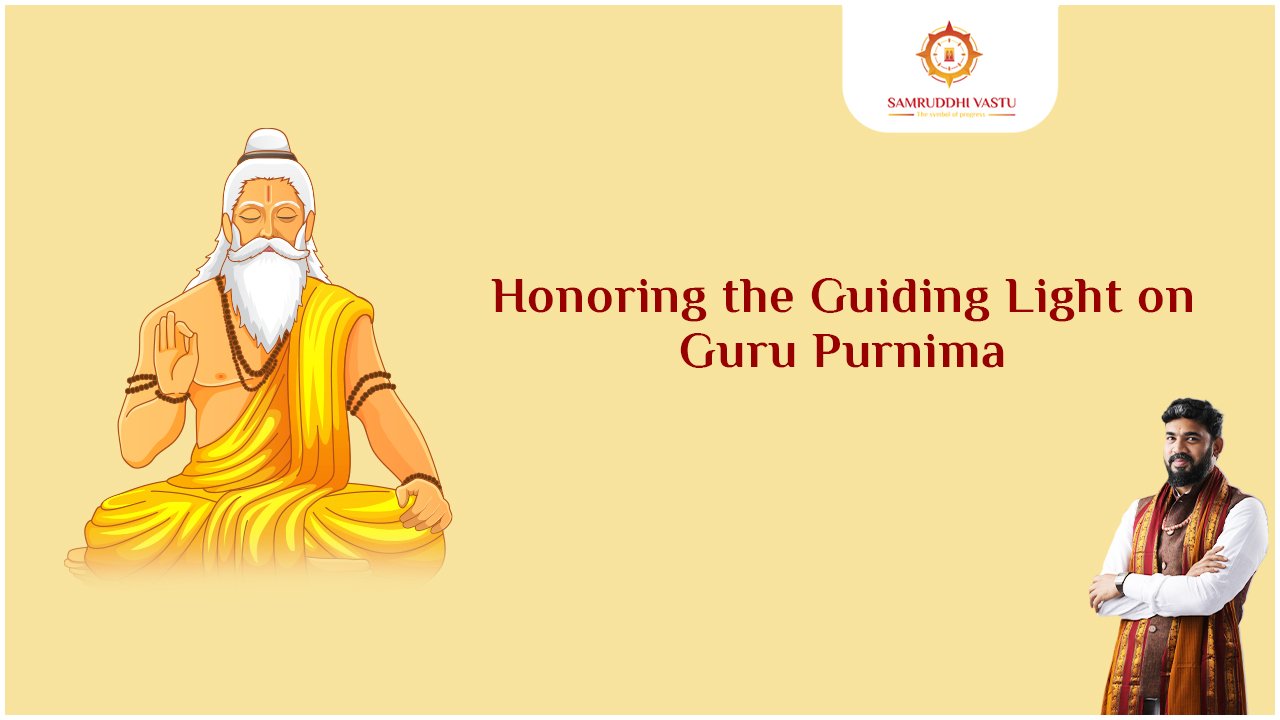Guru Purnima, a revered spiritual festival celebrated across India and beyond, is a time to honor the invaluable role of teachers, mentors, and spiritual guides in one’s life. This auspicious occasion, which falls on the full moon day (Purnima) of the Hindu month of Ashadha, will be observed on July 21st, 2024.
The word “guru” in Sanskrit means “dispeller of darkness” – one who guides us from ignorance to knowledge, from darkness to light. Purnima refers to the full moon, a symbol of enlightenment and inner illumination. Thus, Guru Purnima represents the celebration of the enlightened being who imparts wisdom and helps us on our spiritual journey.
Origins and Significance
The origins of Guru Purnima can be traced back to ancient India, where it was observed as a day to pay reverence to the great sage Vyasa. Vyasa is revered as the compiler of the Vedas, the author of the epic Mahabharata, and the creator of the Puranas – the foundational texts of Hindu philosophy and spirituality.
According to legend, Vyasa was born on the Ashadha Purnima, and it is on this day that he was honored by his disciple, the god Ganesha, who transcribed the Mahabharata as Vyasa dictated it. This act of honoring one’s teacher is the essence of Guru Purnima.
Significance of Guru in Vedic Tradition
In the rich spiritual traditions of India, the role of the Guru, or teacher, holds a supremely elevated position. This is eloquently expressed in the ancient Vedic scripture verses that extol the Guru as the embodiment of the divine.
The Vedas, which are the foundational scriptures of Hinduism, contain numerous passages that underscore the paramount importance of the Guru. One such oft-cited shloka (verse) reads:
“Gururbrahmā Gururviṣhṇu Gururdēvōh Mahēśhvarah
Guru Sākṣhāth Paraṁ Brahmah Tasmai Shrī Guravē Namah“
This verse conveys the profound reverence with which the Guru is regarded in the Vedic tradition. It states that the Guru is akin to the supreme divine trinity of Brahma, Vishnu, and Shiva – the creator, preserver, and destroyer of the cosmos. Moreover, the verse declares the Guru to be the very embodiment of the Absolute Reality, the Ultimate Truth, which is worshipped as the highest divinity.
The word “Guru” itself is deeply significant, composed of the Sanskrit syllables “Gu” and “Ru.” “Gu” signifies darkness, ignorance, or the unknown, while “Ru” denotes the act of dispelling or removing. Thus, the Guru is the one who removes the darkness of ignorance from the seeker’s mind, illuminating the path to knowledge, wisdom, and spiritual enlightenment.
In the Vedic worldview, the Guru occupies a position of utmost veneration, for it is the Guru who guides the disciple from the realm of ignorance to the realm of true understanding. The Guru is not merely a human teacher imparting information; rather, the Guru is believed to be a conduit for the divine grace that flows from the highest realms of consciousness.
It is for this reason that the Guru Purnima, which falls on the full moon day of the lunar month of Ashadha, is celebrated with great reverence across the Indian subcontinent. On this auspicious day, disciples and seekers from all walks of life come together to honor and express their gratitude to their Gurus, acknowledging the profound impact they have had on their lives.
Beyond the historical significance, Guru Purnima holds deep spiritual meaning. The guru, be it a spiritual teacher, a mentor, or even a parent or elder, is seen as an embodiment of the divine – one who guides us on the path of self-discovery and enlightenment. By honoring the guru, we acknowledge the importance of seeking guidance, wisdom, and inspiration from those who have walked the path before us.
Timeless Wisdom of Our Gurus
Guru Purnima, a day of profound significance in the Hindu and Buddhist traditions, is a celebration that transcends the boundaries of time and culture. This auspicious day, which falls on the full moon of the Hindu month of Ashadha, is a time to pay homage to our spiritual teachers, the gurus who have dedicated their lives to enlightening and guiding us on our journeys of self-discovery.
At the heart of this celebration lies the recognition of the profound impact that gurus have had on the spiritual and intellectual landscapes of the world. From ancient times to the present day, these luminaries have selflessly shared their wisdom, inspiring countless individuals to embark on the path of spiritual growth and personal transformation.
Among the most revered gurus in the Hindu tradition are Adi Guru Shankaracharya, Sri Ramanujacharya, and Madhvacharya, each of whom have left an indelible mark on the tapestry of Indian philosophy and spirituality.
Adi Guru Shankaracharya, often referred to as the “founding father of Advaita Vedanta,” was a remarkable scholar and spiritual leader who lived in the 8th century CE. His teachings on the non-dual nature of reality, known as Advaita Vedanta, have had a profound impact on the spiritual landscape of India and beyond. Shankaracharya’s philosophical brilliance and his unwavering dedication to the pursuit of enlightenment have inspired countless seekers to explore the depths of their own being and the nature of the universe.
Sri Ramanujacharya, who lived in the 11th-12th century CE, was another towering figure in the Hindu tradition. As the proponent of Vishishtadvaita, or qualified non-dualism, Ramanujacharya emphasized the existence of a personal God and the individual’s relationship with the divine. His teachings on devotion, compassion, and the path of bhakti, or devotional love, have resonated with millions of devotees and continue to inspire spiritual seekers to this day.
Madhvacharya, who lived in the 13th century CE, was the founder of the Dvaita, or dualistic, school of Vedanta philosophy. His teachings on the eternal distinction between the individual soul and the Supreme Being, as well as his emphasis on the path of knowledge and righteous action, have had a significant influence on the Hindu philosophical tradition. Madhvacharya’s unwavering commitment to the pursuit of truth and his dedication to the liberation of the soul have made him a revered figure in the Hindu pantheon.
These three great gurus, each with their unique perspectives and approaches, have left an indelible mark on the spiritual and intellectual landscape of India. Their teachings continue to be studied, debated, and applied by seekers of truth and wisdom, inspiring them to deepen their understanding of the divine, the self, and the nature of existence.
What to do on Guru Purnima Day?
Guru Purnima is celebrated with great reverence and enthusiasm across India. In ashrams, temples, and spiritual centers, the day begins with traditional rituals and prayers. Devotees gather to meditate, chant mantras, and listen to discourses on the teachings of spiritual masters.
Meet the individual you regard as your Guru.
Shri Aadi Shankaracharya is revered as the Jagathguru (teacher of all) according to the Vedic scriptures. You may choose to worship Him on this day.
Additionally, the Guru’s Guru, Guru Dattathreya, should also be honored, and reciting the Dutt Bavani is recommended.
In Vedic Astrology, Jupiter (Brihaspati) is known as the Guru, symbolizing higher education and ideals. You may worship Lord Jupiter on this auspicious day.
A common practice is for students and disciples to visit their gurus, offer them flowers, fruits, and sweets, and seek their blessings..
In some regions, the day is also marked by community gatherings, where people come together to discuss spiritual teachings, participate in satsangs (spiritual discourses), and engage in devotional singing (bhajans). These events foster a sense of unity and connection among the spiritual community.
Beyond the religious and spiritual aspects, Guru Purnima is also celebrated as a day to honor educators, professors, and teachers in general. Students express their appreciation for their teachers, often presenting them with gifts, cards, and token of gratitude.
The Guru-Disciple Relationship
At the heart of Guru Purnima lies the profound relationship between the guru and the disciple. The guru is seen as a beacon of wisdom, a guide who helps the disciple navigate the complexities of life and the depths of the spiritual realm.
The guru-disciple relationship is built on trust, respect, and a deep willingness to learn. The disciple approaches the guru with an open mind and a sincere desire to grow, while the guru selflessly shares their knowledge and insights, tailoring their teachings to the disciple’s unique needs and level of understanding.
This relationship is not limited to the spiritual realm; it can manifest in various aspects of life, where a mentor or a teacher serves as a guiding force, imparting valuable lessons and empowering the individual to reach their full potential.
Conclusion
As we approach Guru Purnima on July 21st, 2024, it is a time to reflect on the profound impact of the gurus in our lives, be they spiritual teachers, mentors, or educators. It is an opportunity to express our gratitude, seek their blessings, and rededicate ourselves to the path of learning and self-transformation.
Whether you participate in the traditional rituals, attend a community celebration, or simply take a moment to introspect, Guru Purnima serves as a powerful reminder of the importance of guidance, wisdom, and the eternal bond between the teacher and the student. By honoring the guru, we honor the light that illuminates our journey and helps us grow into our truest, most authentic selves.
As we celebrate Guru Purnima, it is an opportunity for us to reflect on the immense gratitude and reverence we owe to our own teachers and mentors, who have guided us, challenged us, and helped us to grow. Whether they are spiritual guides, academic mentors, or simply compassionate individuals who have shared their knowledge and insights with us, they have played a crucial role in shaping our lives and our perspectives.
In this spirit of gratitude and appreciation, let us take time on this auspicious day to honor the gurus who have touched our lives, and to rededicate ourselves to the pursuit of knowledge, wisdom, and spiritual growth. May their teachings continue to inspire and guide us on our individual and collective journeys, as we strive to embody the timeless wisdom that they have so generously shared with us.

